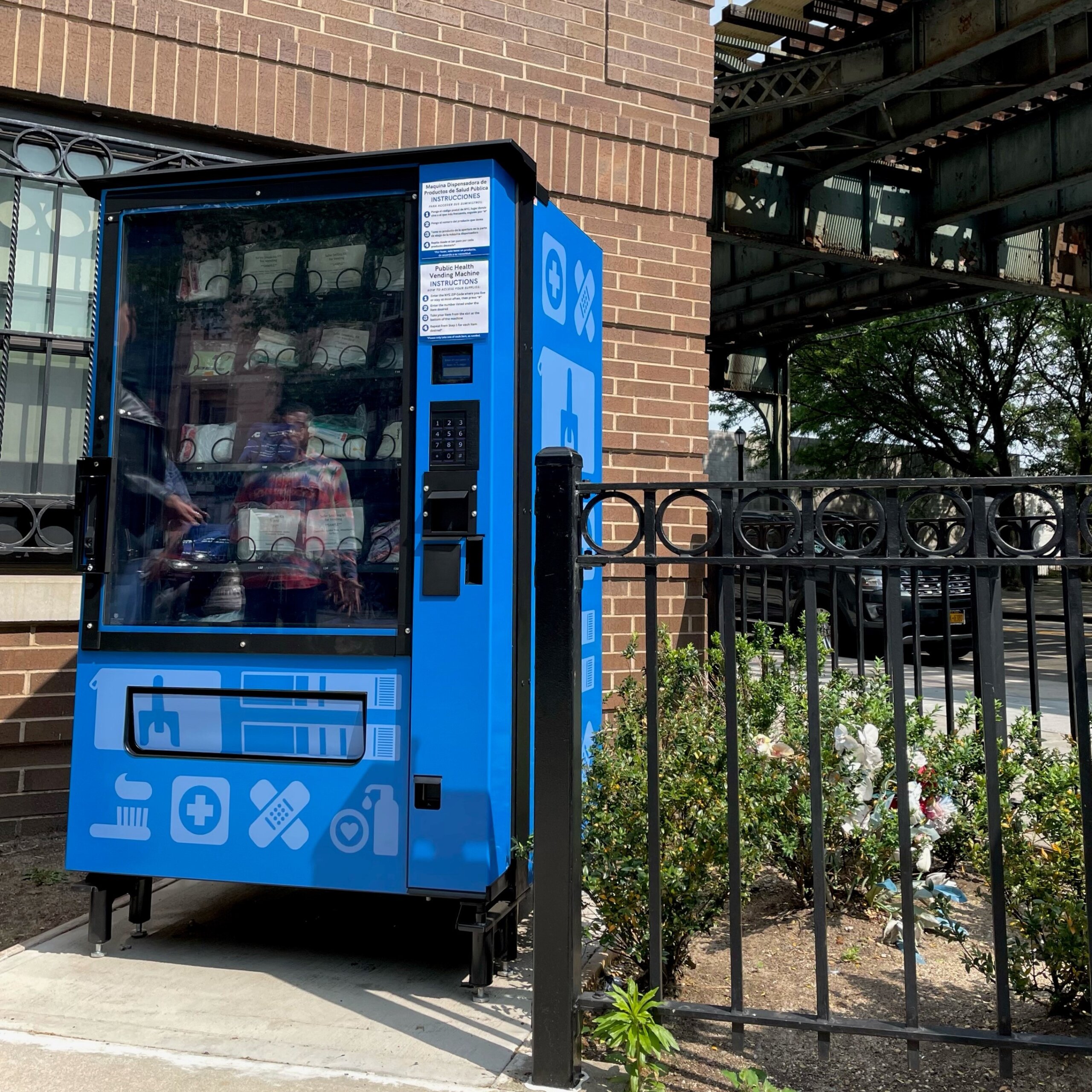Jun. 19, 2023 By John Schilling
Representatives from the AIDS Center of Queens County (ACQC) in Far Rockaway appeared before Community Board 14 last week to hear feedback and field questions about the installation of a public health vending machine outside their facility at 1600 Central Ave.
The vending machine is one of three that will debut across the city in the coming months after New York City health officials launched the project’s first machine in Brooklyn earlier this month. Far Rockaway’s consideration for a machine came after the NYC Department of Health and Mental Hygiene released a request for proposals late last year.
“Far Rockaway was one of several neighborhoods that was selected … given the high rates of overdose death we see in the community,” NYC DOHMH Special Projects Coordinator Roxanne Anderson said. “In addition to these high overdose rates, we also see limited access to harm reduction services.”
The department awarded funding to ACQC, which has served Queens since 1986, for the project based on the organization’s experience in providing care to the community, specifically those in zip code 11691, where overdose rates were the highest in all of Queens with 43.3 overdose deaths per 100,000 NYC residents in 2021.
ACQC currently visits Far Rockaway every Wednesday to offer harm reduction services, but only for a limited window of 11 a.m. to 3 p.m. They say the vending machine will help extend their reach by providing 24/7 access to a variety of “lifesaving harm reduction supplies” free of charge. Among these supplies are sterile syringes, fentanyl testing strips, naloxone nasal spray, as well as designated kits for smoking, hygiene, safe sex and wound care.

The public health vending machine in Brooklyn.Photo courtesy of the NYC Department of Health
The project is also designed to expand ACQC’s engagement in the community, something the representatives see as crucial. According to a needs assessment survey the team conducted, 79% of respondents indicated they would use the machine.
“The goals of the project are to reduce harm, to serve people who use drugs,” ACQC Supervisor of Prevention Services Chloe Forsell said. “We do have a presence in Far Rockaway, but we want to continue to strengthen that presence.”
Some members of the community board, however, were skeptical about the machine and how it will function in the community. Board member Jose Velez expressed concern about potential vandalism to the machine, something that has yet to happen to the already existing machines across the country, according to Anderson.
“If there are instances of vandalism, we’re committed to working with the community to address those and be responsive,” Anderson added.
Board member Nancy Martinez brought up how the vending machine would be in close proximity to Challenge Charter High School and expressed concern about teenagers potentially using stuff in the machine they don’t need and that could be harmful to them.
“This is a concern to the community because teenagers will do things,” Martinez said. “Kids will be kids.”
This concern was shared by board member Louis Caucig, who pointed out that some kids may even empty the machine and start selling the supplies on the black market.
“Who’s going to stop an entrepreneur kid?” Caucig asked. “Are you going to have any cameras in the area?”
Forcell responded that this was not something they were concerned about, adding that they will not have cameras around the machine so that people can access supplies anonymously. She then informed the board that this machine is a part of the pilot program, meaning that they will evaluate the rollout process down the line, revisit the board to report on the success of the project and implement their feedback.
Board member David Shelborne questioned the overall vision of the project, claiming it could have a reverse effect on those in the community suffering from drug addiction.
“It seems to me you’re just giving them better opportunities for them to get high or overdose. You’re giving more needles out,” Shelborne said. “It seems to me that the project should be on trying to get the people off of drugs.”
Forcell acknowledged Shelborne’s concern but maintained that the project’s purpose is “to meet people where they’re at.”
“Part of syringe exchange and handing out harm reduction materials…is that there are safer ways to use drugs,” Forcell added. “There are ways to decrease that overdose potential.”
Assistant Coordinator ACQC Erika Vasquez added that the project’s goal is not to encourage drug use but to save lives.
“People are going to do what they’re going to do,” Vasquez said. “We are here to make sure they do it safely and that people are not dying from overdoses.”
At the presentation’s conclusion, Board Chairperson Dolores Orr told the rest of the board that they would schedule another meeting with ACQC in the fall, as the machine project progresses.